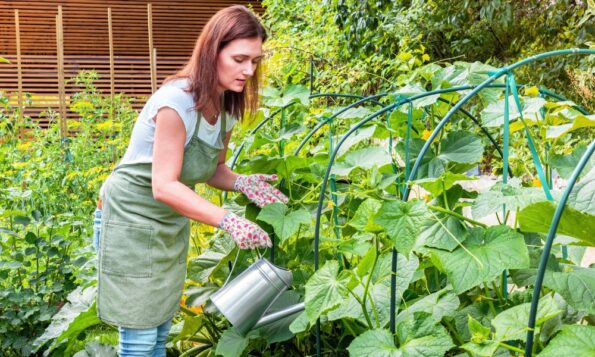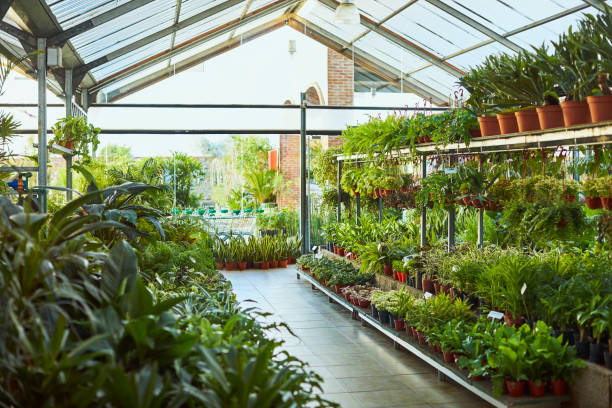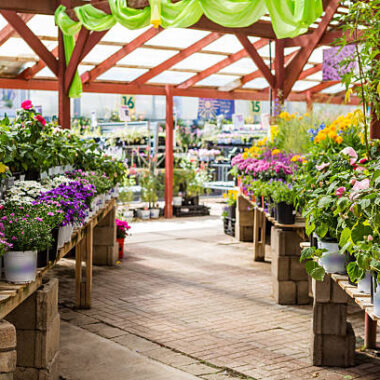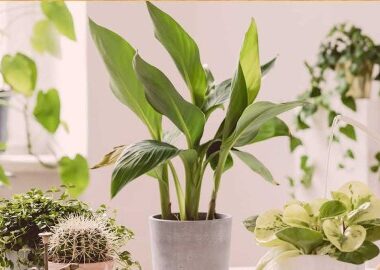Introduction
Organic gardening has gained popularity as people become more conscious of their health, the environment, and the quality of the food they consume. By avoiding synthetic pesticides and fertilizers, organic gardening promotes sustainable practices and helps create a healthier ecosystem. In this article, we will explore the benefits of organic gardening and provide practical tips on how to get started.

1. Healthier, Chemical-Free Produce:
2. Environmental Conservation:
Organic gardening practices prioritize soil health and biodiversity. By avoiding chemical inputs, organic gardens support beneficial insects, pollinators, and microorganisms, contributing to a more balanced and sustainable ecosystem. Organic gardening also helps protect water sources from contamination and reduces soil erosion.
3. Nutrient-Rich Soil:
Organic gardening focuses on building and maintaining healthy soil. By using organic matter, compost, and natural fertilizers, organic gardeners enhance soil fertility and structure. This results in nutrient-rich soil that promotes strong plant growth, better water retention, and increased resistance to pests and diseases.
4. Cost Savings:
Growing your own organic produce can lead to significant cost savings. By eliminating the need to purchase expensive synthetic fertilizers and pesticides, you can reduce your gardening expenses while enjoying a fresh and bountiful harvest. Additionally, saving seeds from organic plants allows you to create a self-sustaining garden year after year.
5. Educational Opportunity:
Organic gardening provides an excellent educational opportunity, especially for children. It teaches them about the importance of sustainable practices, the interdependence of living organisms, and the value of nutritious food. Engaging in organic gardening as a family or community activity fosters a sense of connection with nature and promotes a greener lifestyle.
Getting Started with Organic Gardening:
1. Plan and Prepare:
Choose a suitable location for your garden, considering sunlight exposure and soil quality. Clear the area of weeds and debris, and prepare the soil by incorporating organic matter, such as compost or well-rotted manure.
2. Select Organic Seeds or Seedlings:
Choose organic seeds or seedlings from reputable suppliers. These have been produced without the use of genetically modified organisms (GMOs) or synthetic chemicals. Opt for heirloom varieties to preserve traditional plant genetics.
3. Implement Natural Pest Control Methods:
Prevent pest problems by promoting a healthy garden ecosystem. Encourage beneficial insects, birds, and frogs by providing habitat and minimizing pesticide use. Use natural pest control methods such as companion planting, crop rotation, and physical barriers.
4. Practice Organic Soil Management:
Maintain soil fertility by incorporating organic matter, such as compost, into your garden beds regularly. Avoid chemical fertilizers and use natural alternatives like compost tea or seaweed extract to provide essential nutrients to your plants.
5. Water Wisely:
Water your plants deeply and infrequently to encourage deep root growth. Use mulch to conserve moisture and reduce weed growth. Collect rainwater in barrels for irrigation purposes.
Conclusion:
Embracing organic gardening brings a host of benefits, including healthier produce, environmental conservation, and cost savings. By adopting organic gardening practices and following the tips mentioned, you can create a thriving and sustainable garden while contributing to your well-being and the health of the planet. Start your organic gardening journey today and experience the joy of growing your own organic food.



